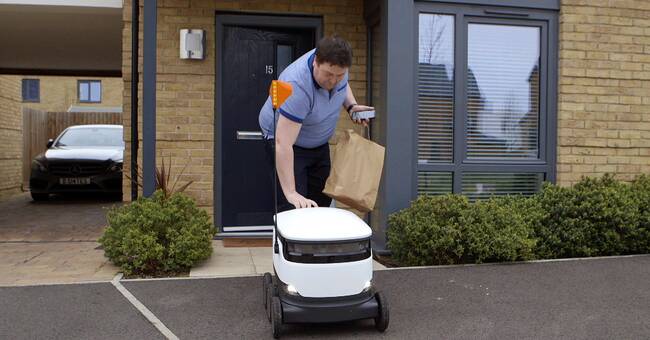In the UK, e-commerce broke through almost ten years earlier than in Sweden.
There, it is most common to have the goods delivered directly to the door.
An unsustainable development with increased emissions as a result, according to Jonathan Reynolds at Oxford University who has been researching deliveries for 40 years.
Just as in Sweden, e-commerce in the UK has received a major boost during the corona pandemic.
It has increased from accounting for 20 percent of everything purchased to 30 percent.
- Five years of development has now taken place in five, six months.
It's incredibly fast, says Jonathan Reynolds in The World of Science.
Robots drive the goods home
Many courier companies have switched to electric vehicles or found other solutions to reduce emissions.
In the city of Milton Keynes in England, a company has started using driverless electric robots to drive the packages the last distance to the customer's home.
In one year, the robots have delivered about one million goods.
Pick-up cupboard as a sustainable solution
But Jonathan Reynolds believes that we must change and enable more people to pick up their packages on foot.
Pick-up cabinets placed in strategic public places where many pass, he believes is the most sustainable model for the future.
- We want smooth deliveries and at the same time save the planet.
But we can not get both.
Want to see more about shopping online? Watch The World of Science - E-commerce: The shopping of the future on SVT Play or Monday 29 March at 20.00 on SVT2.

